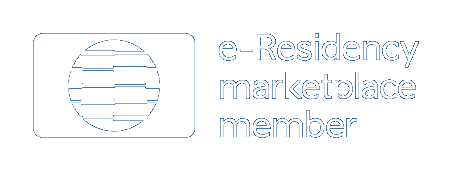OSS and IOSS – the new game changers for EU VAT returns!
Do you know that from the 1st July the EU VAT law is going through some major changes? Three new special schemes will start to apply for VAT. Silva Hunt organised a webinar to find out more from an Estonian leading VAT tax expert Tõnis Elling when and why are the new VAT special arrangements (OSS & IOSS) useful. Here is the summary of what we learned.
PS! The webinar‘s Q&A is also included at the end of this article!
Why are these changes coming and who does it concern?
To answer this we must look at how selling physical goods for businesses in the EU has worked so far. Businesses that surpass a certain amount of turnover in the country of their sales need to register for VAT. If you have customers in multiple EU member states, where your turnover has reached over a certain amount (different for each country) you would need to register in each of these countries. As you can imagine this can be a very costly and timely process. Each country has their own specific VAT rules and often their systems are only in their language, so you would definitely need to use a service in each of those countries.
The new special arrangements OSS and IOSS are going to solve that problem. The new voluntary changes will be especially useful for e-commerce businesses – Amazon FBA sellers, commodity traders, e-shop owners- selling goods to consumers in multiple EU countries. From the 1st July e-commerce sellers who have applied for OSS or IOSS wouldn´t need to register for VAT in each EU member state they are selling to.
What is the OSS special scheme?
You might have heard of MOSS, the Mini One Stop Shop, which applied for electronic service sellers. From the 1st of July, this special scheme MOSS will be extended for physical goods sellers as well and will be called OSS. The extended One Stop Shop is an electronic portal, which lets you declare VAT generated from sales made in the EU. Thanks to this your company can manage doing business with one VAT number.
How does it work?
For example, if you have an Estonian company and an Estonian VAT number you can voluntary register for OSS special scheme, that way all your clients’ countries VATs are being collected to the Estonian online tax portal, where the system will correctly distribute it to different countries. The declarations will be done quarterly and separately from the domestic VAT declaration.
What is the second special arrangement IOSS useful for?
The Import One Stop Shop (IOSS), is also an electronic portal, which lets you declare your sales from goods that were imported to the end consumer from outside of Europe or the European Free Trade Association. It is important to note that the IOSS arrangement can only be used for goods costing up to 150€.
One reason why IOSS is very useful is because the tax exemption for goods costing up to 22€ will no longer apply. That means goods imported from 3. countries will be taxed with VAT from the first cent! The IOSS scheme is attempting to reduce the bureaucracy this brings.
Thanks to the IOSS the third country that provides the goods will only have to register and pay VAT in one EU member state upon the import of goods.
A company that uses the IOSS scheme can include the VAT rate in their e-shop prices, so it will already be paid at the point of sale. This will make the buying process more convenient to the customer since they don‘t have to deal with paying the VAT when receiving the goods.
The IOSS scheme declarations are done monthly at the end of each month (the date isn’t specified).
What obligations arise for the business owner using IOSS or OSS?
You are obliged to keep the accounting documents for 10 years. And to truly benefit from these VAT changes, you should have a solid IT system built, which could sort automatically where the purchase was made, when, by whom and most importantly which VAT rate applies for the customer. If you have a system in place that sorts this out for you, you can fully enjoy the ease that these new regimes bring to doing business.
There are said to be three special arrangements what is the third one?
There are said to be three by law. On our webinar, Tõnis Elling said he wouldn’t call the third one a special regime rather an extension rule to the IOSS which concerns only the logistic companies that send and deliver goods.
So the key takeaway is that your IT systems should be ready for implementing the OSS and IOSS. If you want to start an e-commerce business or expand your existing business consider Estonia. Kick-start your business in a country that is innovative, business-friendly and known for digitalization. Silva Hunt can guide you through the process of forming a company and applying for the OSS or IOSS scheme, get in touch with us now.
Q&A summary from our 17th June webinar
Will only physical goods sellers benefit from these changes or service providers as well?
Most physical goods sellers will benefit, but there are some cases where also service providers can benefit. For example, when an Estonian company wants to sell tickets to a rock concert in Riga, they would have previously had to register for VAT just to sell those tickets for a 2 days concert. Now the ticket selling company can collect the other countries (Latvia‘s in this case) VAT through the OSS special scheme, pay it to the Estonian tax portal and tell them in the declaration exactly which country to distribute the VAT payments.
Can you register for OSS or IOSS in whichever EU country?
Yes absolutely! Do what makes sense for your business! It has been possible to pre-registration for OSS or IOSS since the 1. of April in each EU member state.
IOSS is limited to a value of 150 €. What are the options for goods that exceed this value, for online seller/trader?
There are no good new options for this, unfortunately. You will have to deal with the customs declaration as before.
My company is in Estonia. I have a German VAT because I sell from Amazon in Germany. What if I sell goods to other EU countries? What are the steps that I need to take?
Register for OSS in Germany since most of your VAT needs to be paid there.
We have an IT company registered in Estonia and selling our services worldwide and some of our staff is in India. What steps do I need to take?
Nothing changes for you, since you are selling electronic services you can continue using the formerly known MOSS scheme ( MOSS just changed its name to the extended scheme OSS).
My company is in Estonia and my stocks are in Amazon FC in Germany. Amazon would typically transfer the stocks to other FCs to ensure availability. How will this affect me?
This question needs more time and analysing because there can be a lot of details that come into play. Tõnis Elling usually recommends applying for OSS in the country where your stocks are, if the stocks storage place is constantly changing, the situation needs further analysing in terms of where is the best place to apply for OSS. The country you choose in EU where to register for OSS , is the main system all your VAT will be distributed through to other countries.
What about the dropshipping, what kind of VAT do I have to put in the bill? Is this dependant on the country of the sales or it will be my Estonian VAT number so it is 0?
If you are another EU company selling to another EU company, then yes it is 0. If your selling to the end consumer, you will either put 22% (the Estonian VAT of 2025) if your turnover in that country hasn‘t exceeded 10 k or end consumer‘s country‘s VAT % if it has.
Does 0 VAT still apply if you are selling goods to B2B customers within the EU and not to end consumers?
Yes, it will remain the same. No VAT will be charged if selling or buying from another EU company.
Regarding OSS do we need to provide a special format of accounting documents to the OSS system, or the country´s (in this case Estonias) regular documents will be ok? How frequently do we have to upload accounting information to the OSS? OSS declarations are done quarterly, and in a different format than the regular monthly VAT declaration forms for Estonian entrepreneurs. The OSS declaration is also separate from the IOSS declaration.





 Schedule a call
Schedule a call
 Send a message
Send a message